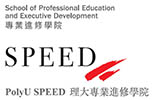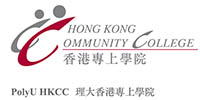雙語社評齊齊聽
[英語 (足本收聽)] Presented by Ms MA, Florence Sze-kei, Lecturer of Hong Kong Community College, The Hong Kong Polytechnic University
[普通話 (足本收聽)] Presented by Dr CHOI, Wai-yuk, Lecturer of Hong Kong Community College, The Hong Kong Polytechnic University
The controversy over the history paper for the Diploma of Secondary Education (DSE) examination has kept raging. The Education Bureau (EDB) has requested the Hong Kong Examinations and Assessment Authority (HKEAA) invalidate an exam question about Sino-Japanese relations at the centre of the controversy. On the other hand, a teachers' group and a student organisation have announced plans to apply for judicial review if the question is struck out. No matter how the HKEAA reacts, it is likely that the row will further escalate and candidates will be the most affected. Whether exam questions should be set in the form of ''pro-con analysis'' when cardinal issues of right and wrong are concerned is something that must be reviewed. However, even if the design of the question is disputable, the interests of candidates should be given the highest priority in the aftermath of the incident. As the history examination has concluded, any attempt of scrapping or overturning it would hardly be fair to any candidate. In view of the heated debate in society over the question, it should not be included in past papers or the future curriculum for students' revision and practice. At the same time, unless the authorities can really find a way that treats all candidates fairly, the exam question should not be scrapped in a rash manner as it will affect the marks and grades of candidates.
The controversy over the exam question is the latest example showing that any issues in relation to China can easily become highly politicised amid serious rifts within Hong Kong society and high tensions between the city and the mainland. In the question concerned, two pieces of background information about Japanese assistance to China in the late Qing and early Republican period were provided. Candidates were asked whether they agreed with the statement ''Japan did more good than harm to China in the period 1900-1945'' using the sources provided and their own knowledge. The EDB criticised the design of the question as ''seriously hurting the feelings and dignity of the Chinese people who suffered great pain during the Japanese invasion of China'' and requested the HKEAA invalidate the question. Members of the education sector reacted differently. Some accused the EDB of political interference while others agreed that there was a major shortcoming in the design of the question. A group of students and teachers have said that if the HKEAA strikes out the exam question, they will apply for a judicial review as well as an injunction to stop it.
''Pros and cons analysis'' is a common form of questions in secondary school examinations. However, whether this format is suitable for all kinds of topics certainly deserves careful thought. Academic freedom is very important in universities, which are places for academic pursuit and research. In comparison, secondary schools are, after all, places for learning basic knowledge and establishing one's concepts of right and wrong. Guiding secondary school students through the contemplation of topics concerning cardinal issues of right and wrong from a ''pros-and-cons'' perspective is not appropriate.
Now that the design of history exam questions has aroused a storm, the HKEAA should look deeply into the problem. It should uphold the basic principles of the education profession and review its exam-question-setting mechanism to see if there are any blind spots or areas of improvement. Nevertheless, candidates should not be the ones to bear the consequences of ill-designed exam questions. Cancelling the question after the exam will have wide ramifications and possibly affect the grades of the candidates. Whatever remedial action is taken afterwards is bound to have shortcomings that are unfair in the eyes of candidates.
The authorities can think of other technical ways of handling the matter. They can remove the question permanently from the practice papers in the future rather than invalidate the question at this moment. The history exam has already ended. Even though the design of the question was found to be unsatisfactory afterwards, what is done cannot be undone. The DSE examination affects a student's chance of further studies. This year's candidates are the most important stakeholders involved. Their interests should be the top priority.
試題縱使不妥當 處理勿影響考生
中學文憑試(DSE)歷史科試題風波持續發酵,教育局要求考評局取消引起爭議的中日關係試題,有教師團體與學生組織則表示,倘若取消試題會提出司法覆核,不管考評局如何處理,風波都有可能進一步升級,最受影響的是應屆考生。牽涉大是大非的課題,應否以「利弊分析」去提問,有必要檢討,然而試題設計縱有爭議,事後處理始終要以應屆考生利益為先。歷史科考試已完,任何「推倒重來」的處理,對每一位考生來說,都難言公道。涉事試題在社會引起激烈爭議,未來不宜作為舊考卷題目,納入必須溫習的課程中;與此同時,除非當局真的找到一個對所有應屆考生公平公道的方法,否則不應貿然取消試題影響考生分數成績。
香港社會撕裂,與內地關係緊繃,任何有關中國的事情,很容易變得高度政治化,今次試題風波正是最新例子。有關試題列出兩則清末民初日本對華援助的背景資料,要求考生就試卷資料及自己所知,回答是否同意「1900-45年間,日本為中國帶來的利多於弊」,教育局批評試題設計,「嚴重傷害在日本侵華戰爭中受到莫大苦難的國民的感情和尊嚴」,要求考評局取消試題。教育界反應不一,有人批評教育局的做法是政治干預,亦有人認同試題設計存在重大缺失。有學生和教師組織表示,如果考評局決定取消試題,他們將提出司法覆核,以及申請禁制令。
「分析利弊」是中學考試題目常見的提問方式,然而是否適用於每一類課題,顯然亦有斟酌的需要。大學是做學問做研究的地方,學術自由非常重要;相比之下,中學始終是汲取基礎知識和建立是非觀的地方,引導中學生從「利與弊」角度,去思考一些牽涉大是大非的課題,並非合適做法。
歷史科試題設計惹來軒然大波,考評局應該深入檢討,堅持以教育專業為本,檢視擬題機制,看看有沒有盲點、是否有地方可以改進,然而試題設計出了問題,後果不應由考生承擔。事後取消試題牽連太大,有可能影響考生成績,任何補救方法都必有缺陷,必然有考生覺得不公道。
當局大可考慮是否有其他技術方法處理,將之從舊題溫習中永久剔除,而不是現在取消試題。歷史科考試已完,事後發現有試題設計不周,亦已覆水難收,DSE考試影響升學機會,應屆考生是最重要持份者,應該優先得到照顧。
明報社評2020.05.19






